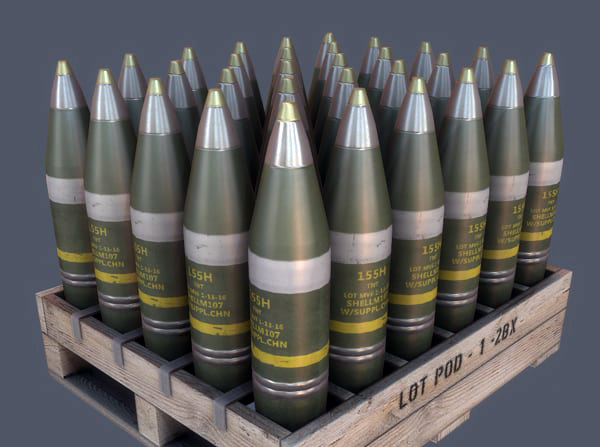Recently Dhanush — the indigenous artillery gun on the lines of Bofors howitzers — cleared the final hurdle. Even as advanced versions are also being developed, apart from hectic purchases of foreign artillery guns, what worries the ordnance factories is that there have been negligible orders for ammunition since 2018.
Apart from the ingeniously made Dhanush and Sharang, the Army is procuring K-9 Vajra and M-777 ultra-light howitzers from Korea and US, respectively. The Advanced Towed Artillery Guns Systems (ATAGS), an advanced version, is being developed indigenously too. However, the shells that are fired from these guns are hardly being ordered by the armed forces. Shells of 155 mm caliber are fed into such guns and ordnance factories have been the supplier over the years.
After corporatization of ordnance factories, manufacture of shells comes under Nagpur-based PSU Yantra India Limited (YIL). Over the years, 155 mm and 105 mm shells were the mainstay products of the ordnance factory at Ambajhari, which is now a key unit of YIL. With defence minister Rajnath Singh on a visit to the factory during his Nagpur tour on Sunday, it is expected that this matter will be taken up before him.
If negligible orders are worrying the corporation, there is also a ray of hope for YIL. It is learnt that lately an advanced country has shown interest in buying over a lakh shells of the 155 mm caliber from the company. Negotiations are at an advanced stage. If the deal works out, this would be the highest-ever order of 155mm shells that the factories have got so far. Before stopping the orders altogether, the erstwhile factory used to get yearly indents for making 50,000 to 60,000 shells of 155mm caliber. The advanced country’s order is expected to be double this.
Apart from this, 105 mm shells were also made for the Indian Field Guns. There are negligible orders for 105 mm shells also, said sources. YIL needs to beef up its turnover to attain financial sustainability which is needed for a PSU. Sources said the company’s order book should be in the range of Rs Rs 2,800 to Rs Rs 3,000 crore for reaching a scale that can leave a surplus. During the first year of corporatization, it was around Rs Rs 1,200 crore. This year it is expected to be around Rs Rs 2,100 crore, which includes orders from the railways.
Deliveries lag behind payments
Post corporatization, the seven PSUs carved out of the ordnance factories were allotted funds proportionate to 60% of their orders. This was an advance to meet working capital requirements. However, it has been recently pointed out by the Army to the department of defence production that deliveries are lagging as against the advance payment. As against advance, the deliveries stand at less than 50% of the target. The PSUs have been asked to give a clarification, said sources.



















